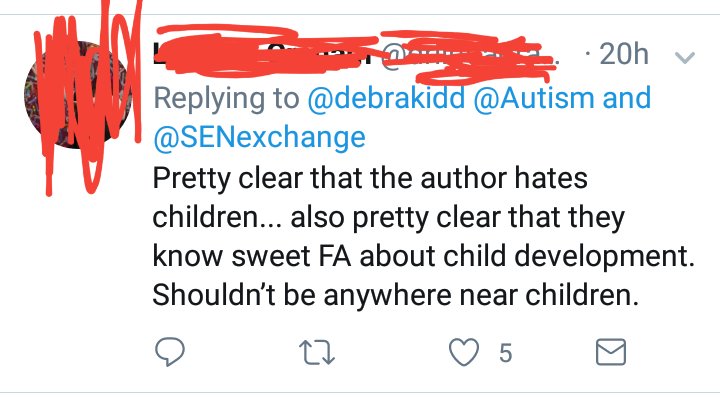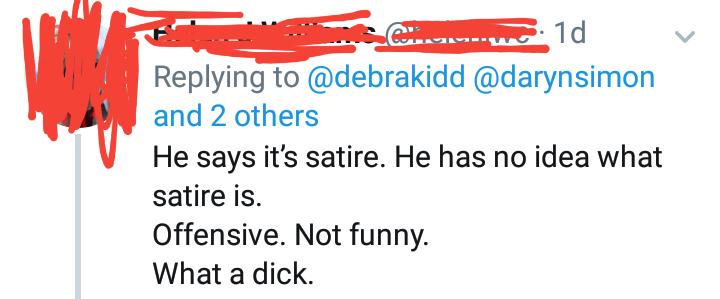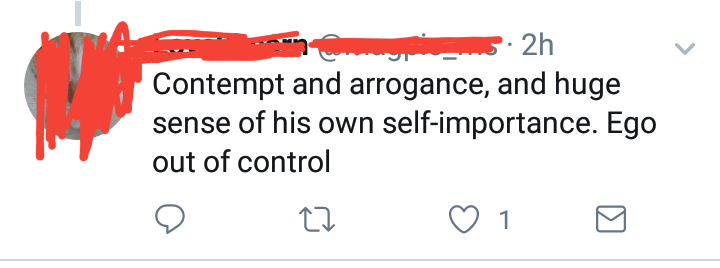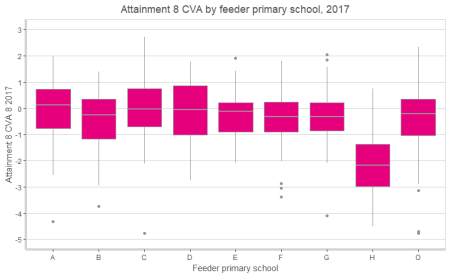There are two basic reasons why schools need discipline.
The first is the practical point. Schools need to be safe and effective. If children and teachers live in fear, or if it becomes impractical to actually teach, then a school is not fit for purpose. Discipline is necessary to prevent disruption and danger. To deny this, is to deny human nature and declare children to be natural saints, who will behave perfectly without the need for boundaries and consequences.
The second is the moral point. We are responsible for our actions. While there must be exceptions to this principle, they are exceptional. Schools are not psychiatric hospitals; children are not insane and discipline is not therapy. Refusing to hold children responsible for their actions can only stunt their moral development. We all need to know we can make the right choices, and we all need the structures that encourage those right choices.
However, there is an alternative narrative that denies these points. This narrative can be identified with progressive education. It relies on the belief that children are natural saints, and we need only liberate them from adult authority and remove whatever obstacles are preventing them from behaving in a saintly way. In this post I will look at the first of these points: children liberated from adult authority.
John Dewey summed up his view of a non-coercive but orderly community in Experience and Education. He argued that just as children play games by cooperating, without the need for an external authority, there is a limited need for authority in education.
I do not mean by this that there are no occasions upon which the authority of, say, the parent does not have to intervene and exercise fairly direct control. But I do say that, in the first place, the number of these occasions is slight in comparison with the number of those in which the control is exercised by situations in which all take part. And what is even more important, the authority in question when exercised in a well-regulated household or other community group is not a manifestation of merely personal will; the parent or teacher exercises it as the representative and agent of the interests of the group as a whole. With respect to the first point, in a well ordered school the main reliance for control of this and that individual is upon the activities carried on and upon the situations in which these activities are maintained. The teacher reduces to a minimum the occasions in which he or she has to exercise authority in a personal way. When it is necessary, in the second place, to speak and act firmly, it is done in behalf of the interest of the group, not as an exhibition of personal power. This makes the difference between action, which is arbitrary, and that which is just and fair.
Moreover, it is not necessary that the difference should be formulated in words, by either teacher or the young, in order to be felt in experience. The number of children who do not feel the difference (even if they cannot articulate it and reduce it to an intellectual principle) between action that is motivated by personal power and desire to dictate and action that is fair, because in the interest of all, is small. I should even be willing to say that upon the whole children are more sensitive to the signs and symptoms of this difference than are adults. Children learn the difference when playing with one another. They are willing, often too willing if anything, to take suggestions from one child and let him be a leader if his conduct adds to the experienced value of what they are doing, while they resent the attempt at dictation. Then they often withdraw and when asked why, say that it is because so-and-so “is too bossy.”
I do not wish to refer to the traditional school in ways which set up a caricature in lieu of a picture. But I think it is fair to say that one reason the personal commands of the teacher so often played an undue role and a season why the order which existed was so much a matter of sheer obedience to the will of an adult was because the situation almost forced it upon the teacher. The school was not a group or community held together by participation in common activities. Consequently, the normal, proper conditions of control were lacking. Their absence was made up for, and to a considerable extent had to be made up for, by the direct intervention of the teacher, who, as the saying went, “kept order.” He kept it because order was in the teacher’s keeping, instead of residing in the shared work being done.
The conclusion is that in what are called the new schools, the primary source of social control resides in the very nature of the work done as a social enterprise in which all individuals have an opportunity to contribute and to which all feel a responsibility. Most children are naturally “sociable.” Isolation is even more irksome to them than to adults. A genuine community life has its ground in this natural sociability.
The strongest argument against this is, of course, to watch actual children playing games and see how often they fail to regulate themselves. If you’ve ever had to supervise a boys’ PE cover in a tough school, with unfamiliar kids and you might have some inkling of just how much adult authority children can need just to play a game for fun. Even a teacher working with a more refined intake will not necessarily develop a rosy view of human nature from watching children play. William Golding, the author of Lord of the Flies, was a grammar school teacher, yet had no optimism about the benevolence of children deprived of adult authority.
Hannah Arendt, wrote about what actually happens when children are left unregulated in her essay “The Crisis of Education” which was published in this book. She described the progressive ideal:
… there exist a child’s world and a society formed among children that are autonomous and must insofar as possible be left to them to govern. Adults are only there to help with this government. The authority that tells the individual child what to do and what not to do rests with the child group itself–and this produces, among other consequences, a situation in which the adult stands helpless before the individual child and out of contact with him. He can only tell him to do what he likes and then prevent the worst from happening. The real and normal relations between children and adults, arising from the fact that people of all ages are always simultaneously together in the world, are thus broken off. And so it is of the essence of this first basic assumption that it takes into account only the group and not the individual child.
As for the child in the group, he is of course rather worse off than before. For the authority of a group, even a child group, is always considerably stronger and more tyrannical than the severest authority of an individual person can ever be. If one looks at it from the standpoint of the individual child, his chances to rebel or to do anything on his own hook are practically nil; he no longer finds himself in a very unequal contest with a person who has, to be sure, absolute superiority over him but in contest with whom he can nevertheless count on the solidarity of other children, that is, of his own kind; rather he is in the position, hopeless by definition, of a minority of one confronted by the absolute majority of all the others. There are very few grown people who can endure such a situation, even when it is not supported by external means of compulsion; children are simply and utterly incapable of it.
Therefore by being emancipated from the authority of adults the child has not been freed but has been subjected to a much more terrifying and truly tyrannical authority, the tyranny of the majority. In any case the result is that the children have been so to speak banished from the world of grown-ups. They are either thrown back upon themselves or handed over to the tyranny of their own group, against which, because of its numerical superiority, they cannot rebel, with which, because they are children, they cannot reason, and out of which they cannot flee to any other world because the world of adults is barred to them. The reaction of the children to this pressure tends to be either conformism or juvenile delinquency, and is frequently a mixture of both.
Who is right? Dewey or Arendt?
I don’t think there is much debate about this among classroom teachers. Certainly not in secondary schools. We know that the hierarchies formed among children are far less benevolent than the one that puts the teacher in charge. We know that unsupervised kids can cause a hell of a lot of trouble. Maybe not every time and not all the time, but often enough to know that adults must have authority over children for children to be safe and for children to learn effectively. We know that slogans like “positive behaviour management” or “restorative justice” mean little more than letting kids get away with it.
Possibly the only alternative model that might be supported by a classroom teacher is one where the teacher manipulates children, without the need for explicit authority, like the monstrous progressive teacher in The Prime of Miss Jean Brodie, who manipulates a group of girls in completely unethical ways. Ironically, refusing to exercise adult authority over children’s actions, can actually require greater adult control over their thoughts. If the rule of the mob is to be avoided, the methods of the cult leader, or the propagandist, are the most likely alternative to the natural authority of adults over children. But even these methods, seek only to direct the mob, not to limit its authority.
Next time I will look at the second part of the progressive narrative on behaviour: the denial of personal responsibility.











The Progressive Narrative on Behaviour. Part 1
May 28, 2018There are two basic reasons why schools need discipline.
The first is the practical point. Schools need to be safe and effective. If children and teachers live in fear, or if it becomes impractical to actually teach, then a school is not fit for purpose. Discipline is necessary to prevent disruption and danger. To deny this, is to deny human nature and declare children to be natural saints, who will behave perfectly without the need for boundaries and consequences.
The second is the moral point. We are responsible for our actions. While there must be exceptions to this principle, they are exceptional. Schools are not psychiatric hospitals; children are not insane and discipline is not therapy. Refusing to hold children responsible for their actions can only stunt their moral development. We all need to know we can make the right choices, and we all need the structures that encourage those right choices.
However, there is an alternative narrative that denies these points. This narrative can be identified with progressive education. It relies on the belief that children are natural saints, and we need only liberate them from adult authority and remove whatever obstacles are preventing them from behaving in a saintly way. In this post I will look at the first of these points: children liberated from adult authority.
John Dewey summed up his view of a non-coercive but orderly community in Experience and Education. He argued that just as children play games by cooperating, without the need for an external authority, there is a limited need for authority in education.
The strongest argument against this is, of course, to watch actual children playing games and see how often they fail to regulate themselves. If you’ve ever had to supervise a boys’ PE cover in a tough school, with unfamiliar kids and you might have some inkling of just how much adult authority children can need just to play a game for fun. Even a teacher working with a more refined intake will not necessarily develop a rosy view of human nature from watching children play. William Golding, the author of Lord of the Flies, was a grammar school teacher, yet had no optimism about the benevolence of children deprived of adult authority.
Hannah Arendt, wrote about what actually happens when children are left unregulated in her essay “The Crisis of Education” which was published in this book. She described the progressive ideal:
Who is right? Dewey or Arendt?
I don’t think there is much debate about this among classroom teachers. Certainly not in secondary schools. We know that the hierarchies formed among children are far less benevolent than the one that puts the teacher in charge. We know that unsupervised kids can cause a hell of a lot of trouble. Maybe not every time and not all the time, but often enough to know that adults must have authority over children for children to be safe and for children to learn effectively. We know that slogans like “positive behaviour management” or “restorative justice” mean little more than letting kids get away with it.
Possibly the only alternative model that might be supported by a classroom teacher is one where the teacher manipulates children, without the need for explicit authority, like the monstrous progressive teacher in The Prime of Miss Jean Brodie, who manipulates a group of girls in completely unethical ways. Ironically, refusing to exercise adult authority over children’s actions, can actually require greater adult control over their thoughts. If the rule of the mob is to be avoided, the methods of the cult leader, or the propagandist, are the most likely alternative to the natural authority of adults over children. But even these methods, seek only to direct the mob, not to limit its authority.
Next time I will look at the second part of the progressive narrative on behaviour: the denial of personal responsibility.
Share this:
Posted in Commentary | 13 Comments »